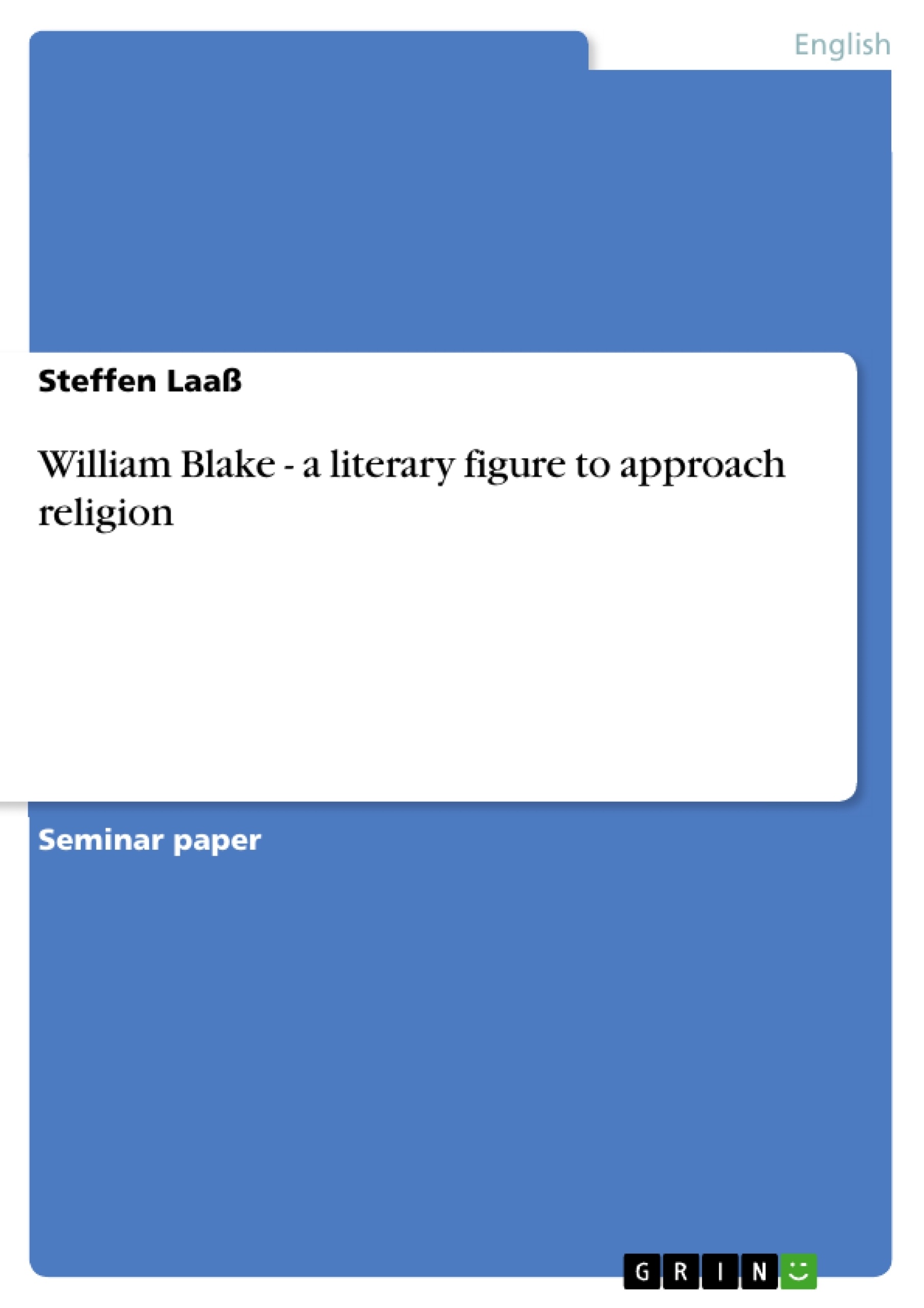“We have war, injustice, and unhappiness
because our way of life is founded on mistaken beliefs.”
This quotation by William Blake set me thinking and distracted me from my actual project: I wanted to write an essay on a poem. But during my work I, fortunately, ended up in a chaos of philosophical questions: Who are we? Where do we come from? Is our universe only a dust particle of something larger? Is there a force guiding us? Who or what is God?
From time immemorial, people have been racking their brains over these ageless and puzzling questions, and I doubt whether we are able to provide convincing responses to them. Someone who might give us a wise answer is William Blake (1757–1827). He is considered to be the first major Romantic poet, and a central theme of his works is religion (e.g. The Marriage of Heaven and Hell, The Book of Urizen). Admittedly, there is no easy access to Blake because he is one of the most obscure and inscrutable poets. Nevertheless, I would like to make the daring attempt to uncover the secrets of Blake’s religious mysticism. For this reason, I will discuss one of his first works There Is No Natural Religion (1788).
My design is to make this essay accessible to a wide readership, especially to those who have so far avoided profoundly dealing with a particular topic: religion. I also had no serious interest in religion at all – until I started to learn Arabic. Once you have mastered “Allah’s difficult but most ornate language”, you have got a completely different outlook on the world. Beside this, I felt an urgent personal need to deal with the concept of faith in greater detail. This has in part something to do with the changing idea and role of religion in the 21st century. Unfortunately, a number of armed conflicts have been provoked grounded on disagreements between several religious groups, and since September 11 people fear that a potential third world war will be a war of religions, a war between cultures. So this subject is of utmost relevance to the current events.
I hope to provide a vivid, comprehensible and, above all, stimulating and entertaining essay. Keywords that I put in italics serve as a guide through our discussion. So let’s begin and explore the (still) unknown spheres of religion. William Blake will give us a hand.
Table of Contents
- Preface
- Basic Concepts
- The Image of God
- Blake and the Deists
- There Is No Natural Religion
- Blake and the Church
- Final Remarks
Objectives and Key Themes
This essay explores William Blake's religious mysticism, focusing on his early work There Is No Natural Religion (1788). The aim is to make Blake's ideas accessible to a wider readership, particularly those who are not familiar with religion or who have avoided engaging with it in depth. The essay emphasizes the importance of understanding religion in the context of contemporary events, particularly the rise of religious conflict and the increasing fear of a third world war based on cultural and religious differences.
- William Blake's religious mysticism
- The concept of natural religion
- The role of faith and reason in religious thought
- The relationship between religion and society
- The changing nature of religion in the 21st century
Chapter Summaries
- Preface: The preface introduces the essay's theme and provides a personal context for the author's interest in religion. It highlights Blake's influence on the author's own philosophical journey and the relevance of Blake's ideas to contemporary concerns about religion and conflict.
- Basic Concepts: This chapter defines key terms related to religion, including atheism, agnosticism, deism, and theism. It explores the different perspectives on the existence and influence of God, setting the stage for a deeper discussion of Blake's views.
- The Image of God: This chapter examines the concept of God, challenging the traditional image of a male deity and exploring the philosophical implications of God's existence.
Keywords
This essay explores key terms and concepts related to religion, including atheism, agnosticism, deism, theism, natural religion, faith, reason, mysticism, and William Blake's religious views. It also examines the relationship between religion and society, particularly in the context of contemporary conflicts and the changing nature of religion in the 21st century.
- Citar trabajo
- Steffen Laaß (Autor), 2004, William Blake - a literary figure to approach religion, Múnich, GRIN Verlag, https://www.grin.com/document/70852



